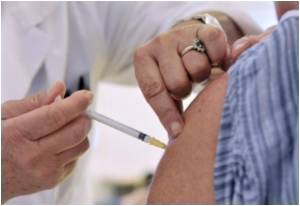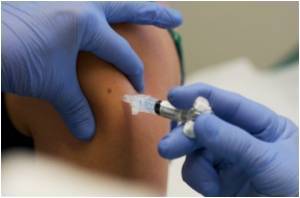Researchers at the Johns Hopkins Bloomberg School of Public Health have claimed that biological differences between the sexes could be a significant predictor of responses to vaccines.

The review is featured in the May 2010 issue of The Lancet Infectious Diseases.
"Sex can affect the frequency and severity of adverse effects of vaccination, including fever, pain and inflammation," said Sabra Klein, PhD, lead author of the review and an assistant professor at the Bloomberg School's W. Harry Feinstone Department of Molecular Microbiology and Immunology. "This is likely due to the fact that women typically mount stronger immune responses to vaccinations compared to men. In some cases, women need substantially less of a vaccine to mount the same response as men. Pregnancy is also a factor that can alter immune responses to vaccines."
Source-ANI
SRM












